Below is a list of all the terms and phrases and acronyms you may hear throughout your time at MSU Denver but may not completely understand. The are arranged alphabetically.
- Academia: The academic community at universities whose main activities include learning, teaching, and research
- Adult learner: Usually implies a person who returns or begins school later than the typical undergrad population, perhaps after gaining some experience in the workforce.
- Advisor: A person who assists students in planning their educational programs
- Adjunct: An adjunct instructor is a part-time instructor who is hired on a contractual basis.
- AHEC: Short for Auraria Higher Education Center. The 150-acre campus is shared by three separate and distinct institutions of higher learning: Community College of Denver, Metropolitan State University of Denver, and University of Colorado Denver. The Auraria Higher Education Center is a separate state entity whose role is to provide and manage shared services, facilities, and property to support these prominent institutions in achieving their goals.
- Alumni: A graduate from particular college or university.
- Audit: To attend a course without getting a grade for the course.
- Bachelor’s (BA): A four-year degree awarded by a college or university.
- Banner: The computer software responsible for student information and records. Students do not have access to this outside of enrolling for classes.
- Bursar: The treasurer at a college or university.
- Canvas: The university’s learning management system (LMS). It supports learning and teaching by allowing professors to post grades, information, and assignments online.
- Chancellor: A university chancellor is the highest-ranking person in a university’s administration. A university chancellor may also be called a president or a rector.
- Commencement: A ceremony at which students formally receive their academic degrees
- Dean: A high-rank official in a university who is in charge of a department or group of departments.
- Dissertation: The paper written at the end of a degree course, usually for the PhD or doctorate level.
- Doctorate: the highest degree awarded by a graduate school. Most common example is a PhD.
- Emeritus: Someone holding after retirement an honorary title corresponding to that held last during active service. Example: emeritus professor of biology.
- Finals: the last examination series in an academic or professional course that occurs at the end of the semester.
- First-generation student: A college student who is among the first generation of their family line to attend university.
- Graduate student: A college or university student who is studying for a Master’s or doctorate degree.
- Higher education: refers to education which happens after high school, such as college, university, technical school, or a trade school.
- Freshman: A first-year student at school, college or university.
- JSSB: Short for Jordan Student Success Building.
- Junior: A student who is in the third year of a university study.
- Lecturer: A person who teaches in a university but not a professor.
- Major: The main subject that a student studies at college or university.
- Master’s (MA): A degree that is given to a student by a college or university usually after one or two years of additional study following a bachelor’s degree
- Minor: The second most important subject that a student studies at college or university.
- Non-traditional student: A “traditional” student is one that attends college immediately after high school, likely lives in a dorm, and attends classes full time. A non-traditional student may fall exhibit any of the following traits: older than 24 years of age, delayed enrollment after high school, attend college part time, works full time, financially independent from parents, single parent, has dependents (other than spouse), or no high school diploma. Non-traditional students have become the majority at US colleges and universities.
- Office Hours: Specific hours an instructor or professor has set aside outside of class to meet with students.
- Prerequisite: A class that must be taken before another class.
- Professor: A university teacher of the highest rank. Lower ranks include Associate and Assistant Professors.
- Provost: In North America, a provost is the most senior academic administrator and usually second in command at the school after the president; In the UK, Australia, Ireland, and several other countries, a provost may be the head of the entire college.
- Registrar: The administrator who is responsible for student records.
- RTD: Short for Regional Transportation District, this is the public transportation provider of buses and the light rail.
- Semester: One of the two periods into which a year is divided at university.
- Sophomore: A student who is in the second year of a university study.
- Senior: A student who is in the fourth year of a university study.
- Syllabus: A list of topics or books that are planned to be studied in a particular subject. Usually includes objectives for the course and a course schedule as well.
- Thesis: The paper written at the end of a master’s degree.
- Tivoli: The Tivoli Student Union is the epicenter of the Auraria campus and the location of the bookstore, numerous offices for student support, and dining.
- Transcript: An official record of the courses that a student has taken and the marks received
- Undergraduate: A college or university student who is studying for a Bachelor’s degree.
